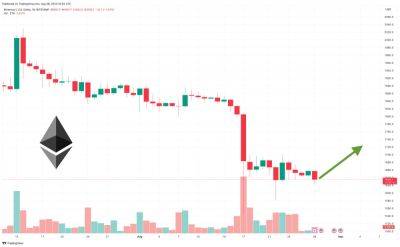Why is the crypto market down this week?
The cryptocurrency market has experienced a notable downturn recently, with the total market capitalization falling by 10% between Aug. 14 and Aug. 23, reaching its lowest point in over two months at $1.04 trillion. This movement has triggered significant liquidations on futures contracts, the most since the FTX collapse in November 2022.
Several economic factors have contributed to this decline. As interest rates have surpassed the 5% mark and inflation remains above the 2% target, borrowing costs for both families and businesses have risen, placing pressure on consumer spending and economic expansion. That means less money is available for savings, which could force people to let go of their investments just to cover monthly bills.
Since inflation expectations for 2024 stand at 3.6% and average hourly earnings increased by 5.5% year-over-year, the fastest pace since 2020, the Federal Reserve is likely to maintain or even raise interest rates in the coming months. Consequently, a high interest rate scenario favors fixed-income investments, which is detrimental to cryptocurrencies.
Inflation has receded from its peak of 9% to the current 3%, while the S&P 500 Index is only 9% below its all-time high. This could indicate a “soft landing” orchestrated by the Federal Reserve, suggesting that the likelihood of an extended and profound recession is diminishing, temporarily undermining Bitcoin's investment thesis as a hedge.
Investor expectations had been high for the approval of a spot Bitcoin exchange-traded fund (ETF), particularly with heavyweight endorsements from BlackRock and Fidelity. However, these hopes were dashed as the United States Securities and Exchange Commission (SEC) continued to delay its decision, citing
Read more on cointelegraph.com





















